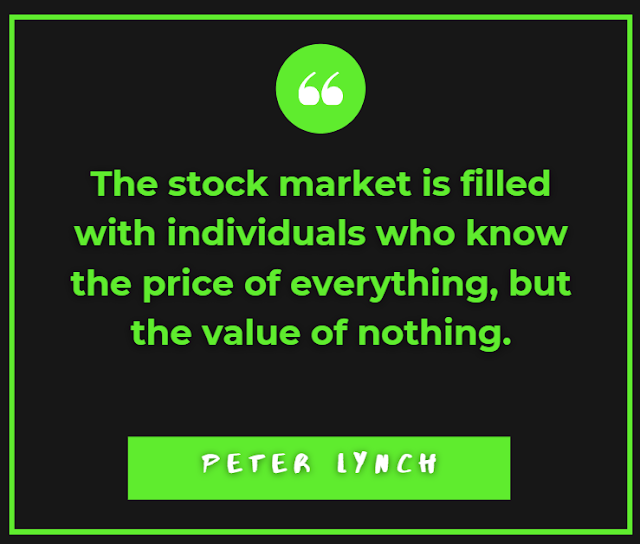Investing: Your Greatest Tool For Building Wealth in 2023
In a hurry? Listen on the go!
Introduction
Investing is a powerful tool that can pave the way to financial prosperity and
can be your greatest tool for building wealth over time. It serves as a
catalyst for achieving your financial goals and securing a stable future.
Putting your money to work for you instead of spending all you earn each month
is the key to financial freedom – but where do you start?
In this article, we will explore the significance of investing in financial literacy, delve into various investment options, understand the risks and
rewards associated with each, discuss goal setting, and highlight the impact
of investing on your overall financial well-being.
Understanding the Importance of Investing in Your Financial Literacy
Financial literacy is the foundation upon which successful investing is built.
It encompasses a broad range of knowledge and skills that enable you to make
informed decisions about your money.
By educating yourself on financial matters, you gain the ability to navigate
the complex world of investments and maximize your returns.
Investing in your financial literacy offers numerous benefits.
It empowers you to understand concepts such as asset allocation,
diversification, and compound interest. Moreover, it enhances your ability to
assess risk, identify investment opportunities, and adapt to market
fluctuations.
By developing a solid financial knowledge base, you can make informed choices
that align with your long-term goals.
As Warren Buffett once said, "The best investment you can make is in
yourself."
Take the time to educate yourself on personal finance, attend workshops or
webinars, read books, and follow reputable blogs. The more you
learn, the better equipped you become to utilize investing as your greatest
tool for building wealth.
Identifying Different Types of Investment Options
When it comes to investing, there is no one-size-fits-all approach. Various
investment options cater to different risk appetites, time horizons, and
financial goals. Let's explore some common investment vehicles:
Stocks
Investing in individual company stocks allows you to become a partial owner
and benefit from their growth. However, stock market investments come with a
level of risk due to market volatility.
Bonds
Bonds are debt instruments issued by governments or corporations. They offer
fixed interest payments over a specified period, making them relatively safer
than stocks but with potentially lower returns.
Mutual Funds
Mutual funds pool money from multiple investors to invest in diversified
portfolios of stocks, bonds, or other assets. They offer a convenient way to
access a variety of investments while spreading risk.
Real Estate
Investing in real estate involves purchasing properties for rental income or
capital appreciation. Real estate investments can provide steady cash flow and
long-term appreciation potential.
Exchange-Traded Funds (ETFs)
ETFs are similar to mutual funds but trade on stock exchanges. They offer
diversification and liquidity, making them a popular choice among
investors.
Cryptocurrency
Cryptocurrency is a digital currency that can be traded on line through crypto
exchanges. It’s extremely high volatility makes it a popular choice for
traders and speculators looking to make a profit off its price variations, but
for the same reason, it also makes it one of the riskier investment
vehicles.
Understanding the Risks and Rewards of Different Investments
First, assess your risk tolerance by evaluating how comfortable you are with the possibility of losing money in exchange for potential gains. Younger investors generally have a higher risk tolerance due to a longer time horizon for recovery.
Next, consider the sort of return you are looking for. Different investments offer varying return potentials. Historically, stocks have provided higher returns over the long term compared to bonds or cash investments. However, past performance does not guarantee future results.
Also, diversifying your investments across different asset classes can help mitigate risk. Spreading your portfolio across stocks, bonds, real estate, and other assets can reduce the impact of a single investment's poor performance.
Finally, consider your investment time horizon, as it influences your ability to ride out market fluctuations. Longer time horizons enable you to weather short-term volatility and benefit from compounding growth.
Setting and Achieving Investment Goals
Setting and achieving investment goals is a crucial step in leveraging
investing as your greatest tool for building wealth. By defining clear
objectives, you create a roadmap that guides your investment decisions and
keeps you focused on the long term.
Start by identifying your financial goals. Do you aim to retire comfortably,
purchase a home, or fund your children's education? Understanding what you
want to achieve helps you tailor your investment strategy accordingly.
Once you have identified your goals, quantify them in terms of the amount of
money you need and the timeline for achieving them. For example, if you plan
to retire in 30 years and estimate you'll need £1 million for a comfortable
retirement, you can work backward to determine how much you need to save and
invest each year.
You will need to assess your risk tolerance and align it with your goals.
Generally, higher-risk investments have the potential for greater returns but
also carry increased volatility. Balance your portfolio to manage risk while
aiming for growth.
Based on your goals, risk tolerance, and investment knowledge, develop a
comprehensive investment plan. Determine the asset classes you will invest in,
the allocation percentages, and the strategies you will employ. Regularly
review and adjust your plan as needed.
It’s a good idea to research tax-efficient investment vehicles such as
individual savings/retirement accounts (ISA in UK, or IRA in the US), or
pension investment funds (SIPP in the UK, or 401(k)s in the US), which offer
tax advantages and can help optimize your investment returns. Consult with a
tax professional to understand the specific benefits available to you.
Once you have decided what you want to invest in, set up automatic
contributions to your investment accounts. This approach ensures consistent
savings and removes the temptation to time the market.
Dollar-cost averaging allows you to buy more shares when prices are low and
fewer shares when prices are high, smoothing out market fluctuations.
It’s important to stay committed to your investment plan, even during periods
of market volatility. Monitor your portfolio's performance regularly, but
avoid making impulsive decisions based on short-term market movements.
Stick to your long-term strategy and make adjustments only when necessary, and
watch your pot of gold start to grow!
Measuring the Impact of Investing on Overall Financial Well-being
Investing goes beyond just the accumulation of money. It has a profound impact on your overall financial and general well-being. Here's how investing can positively influence various aspects of your financial life:
·
Building Wealth: Investing allows your money to grow over time,
potentially outpacing inflation and increasing your net worth. It offers the
opportunity to generate passive income, enhance your financial security, and
achieve long-term financial independence.
·
Mitigating Inflation Risk: Inflation erodes the purchasing
power of money over time. By investing, you have the potential to earn returns
that outpace inflation, preserving and growing the value of your wealth.
·
Funding Future Goals: Investing provides a means to accumulate
funds for significant life events or goals. Whether it's buying a house,
funding your children's education, or embarking on a dream vacation, investing
can help turn aspirations into realities.
·
Retirement Readiness: Investing in retirement accounts helps
ensure a comfortable retirement. By consistently contributing to these
accounts and leveraging the power of compounding, you can build a substantial
nest egg for your golden years.
·
Financial Freedom and Flexibility: Successful investing
provides financial freedom and flexibility. It allows you to have greater
control over your choices, whether it's pursuing a new career path, starting a
business, or giving back to the community.
Conclusion
Investing is undeniably your greatest tool for building wealth and securing a
prosperous future. By investing in your financial literacy, understanding
different investment options, managing risk, setting clear goals, and
measuring the impact of investing on your overall financial well-being, you
can unlock the full potential of investing.
Remember, investing is not a get-rich-quick scheme but a long-term strategy
that requires patience, discipline, and continuous learning.
In the words of Peter Lynch, "The stock market is filled with individuals who
know the price of everything, but the value of nothing." Focus on the value of
your investments and the long-term potential they hold.
By investing wisely, you can harness the power of compounding, leverage market
opportunities, and achieve your financial goals. Remember, building wealth
through investing is a journey, and with knowledge, patience, and
perseverance, you can turn it into your greatest tool for securing a
prosperous future.
As you embark on this journey, continuously educate yourself, adapt to
changing market dynamics, and consult professionals when needed. Investing,
when approached with the right mindset and strategies, can empower you to take
control of your financial destiny and build a lasting legacy.
So, take the first step today and unlock the potential of investing as your
greatest tool for building wealth. Your financial future awaits!








Comments